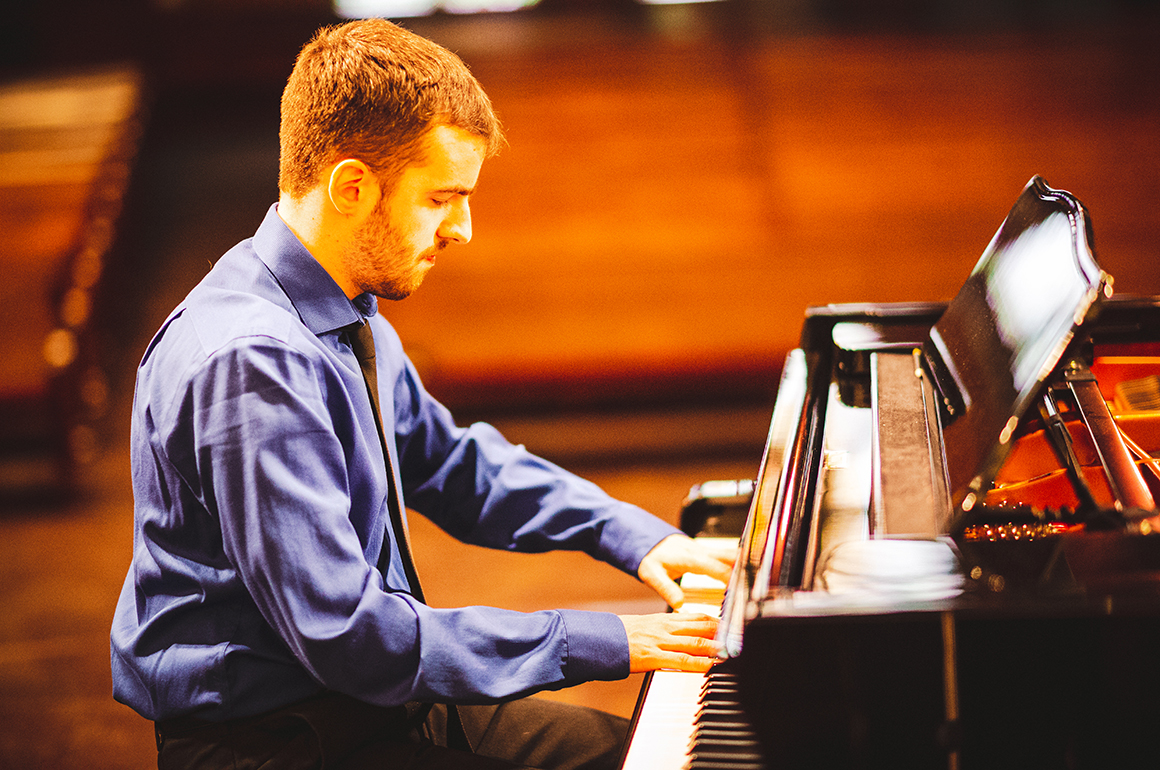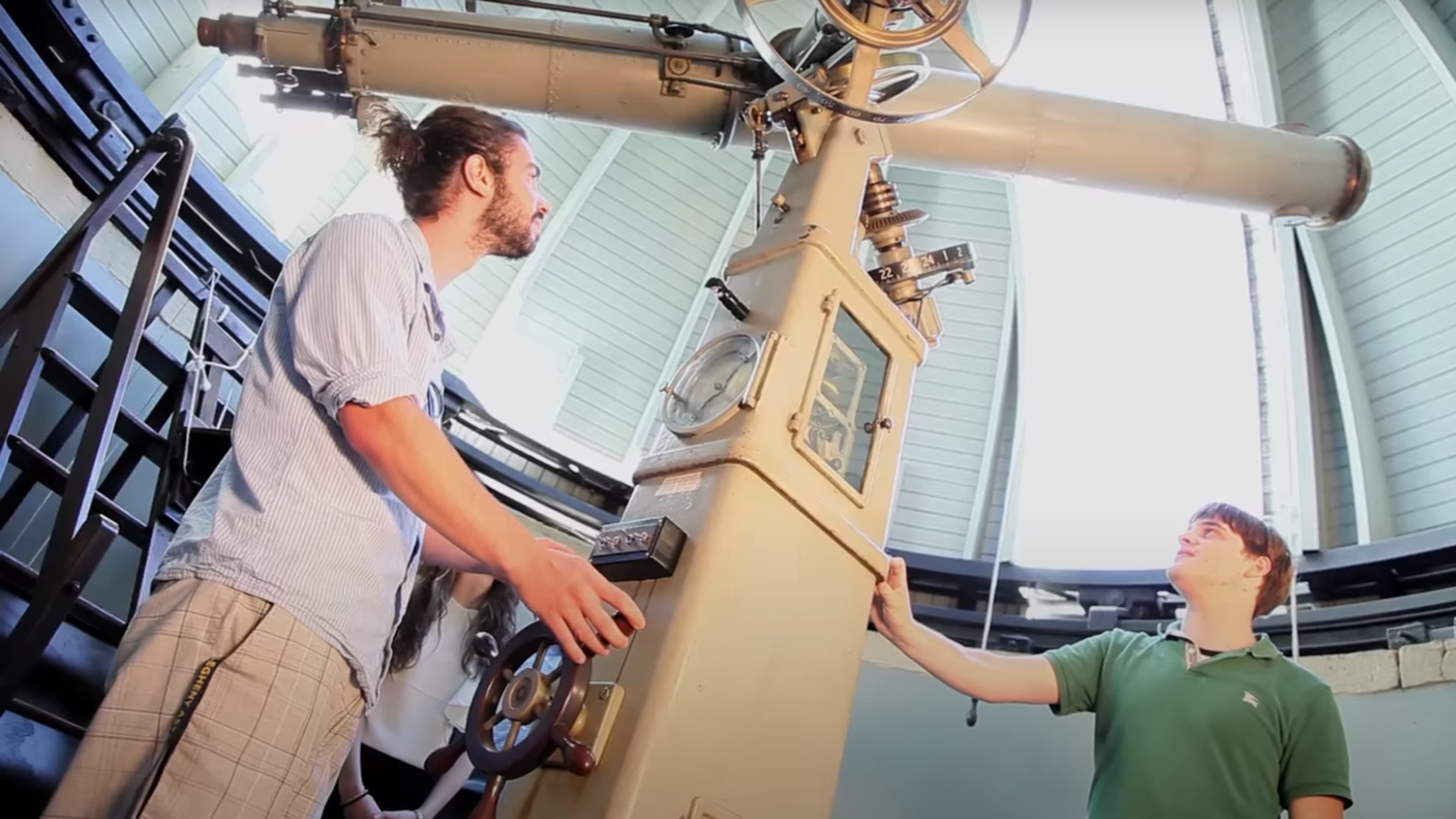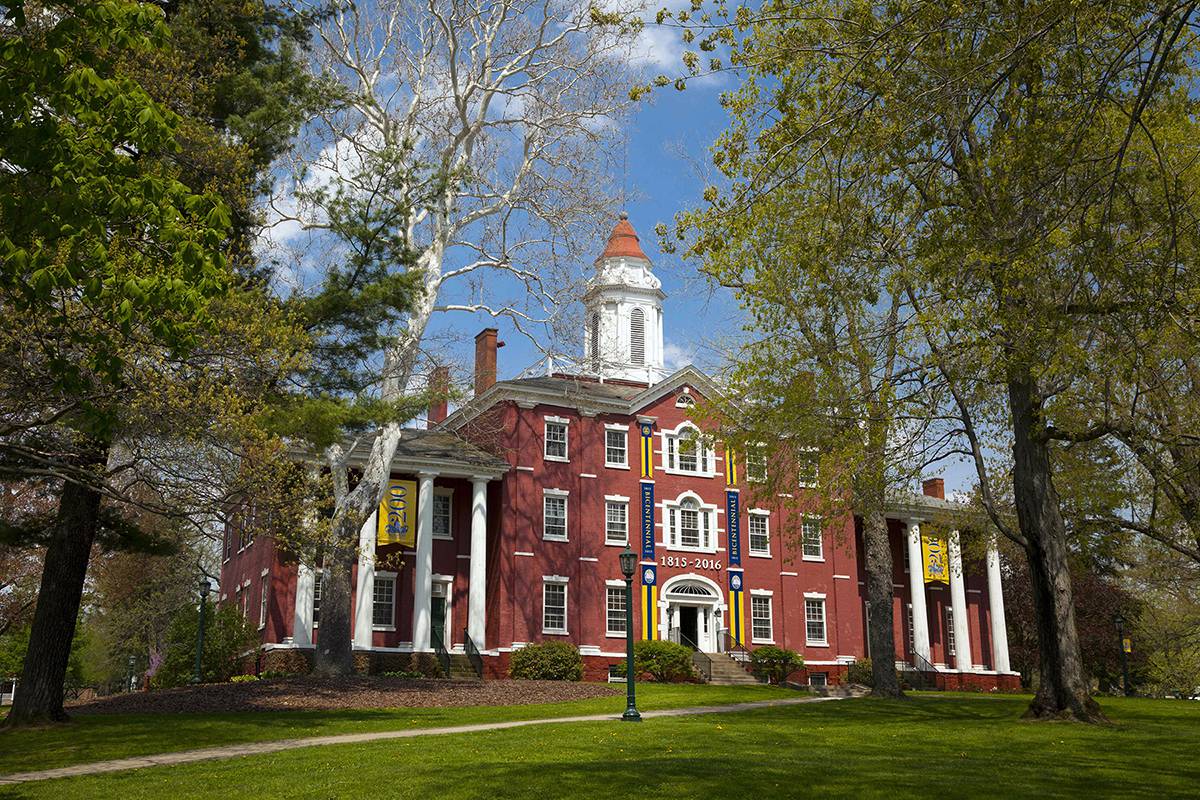Visual and Performing Arts
Music Performance Minor
As a Music student, you can combine the study of performance, history, and theory in a setting that engages the entire academic community. You'll have an array of performance opportunities to explore at Allegheny.
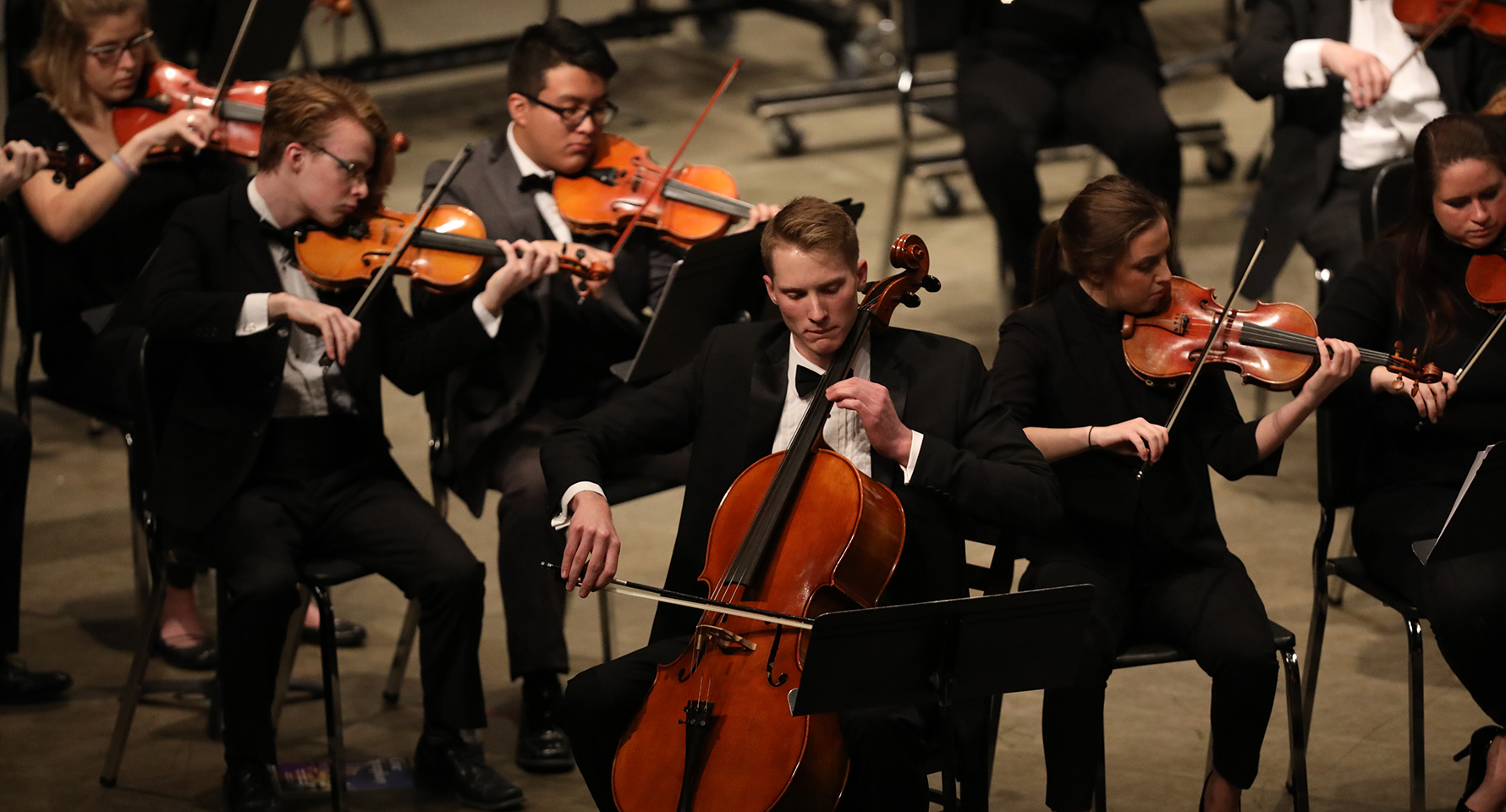
Your Four-Year Journey
Students typically combine this with…
Students are encouraged to explore performance opportunities with one or more ensembles and applied lessons. Students may choose to begin coursework in music theory and/or music history.
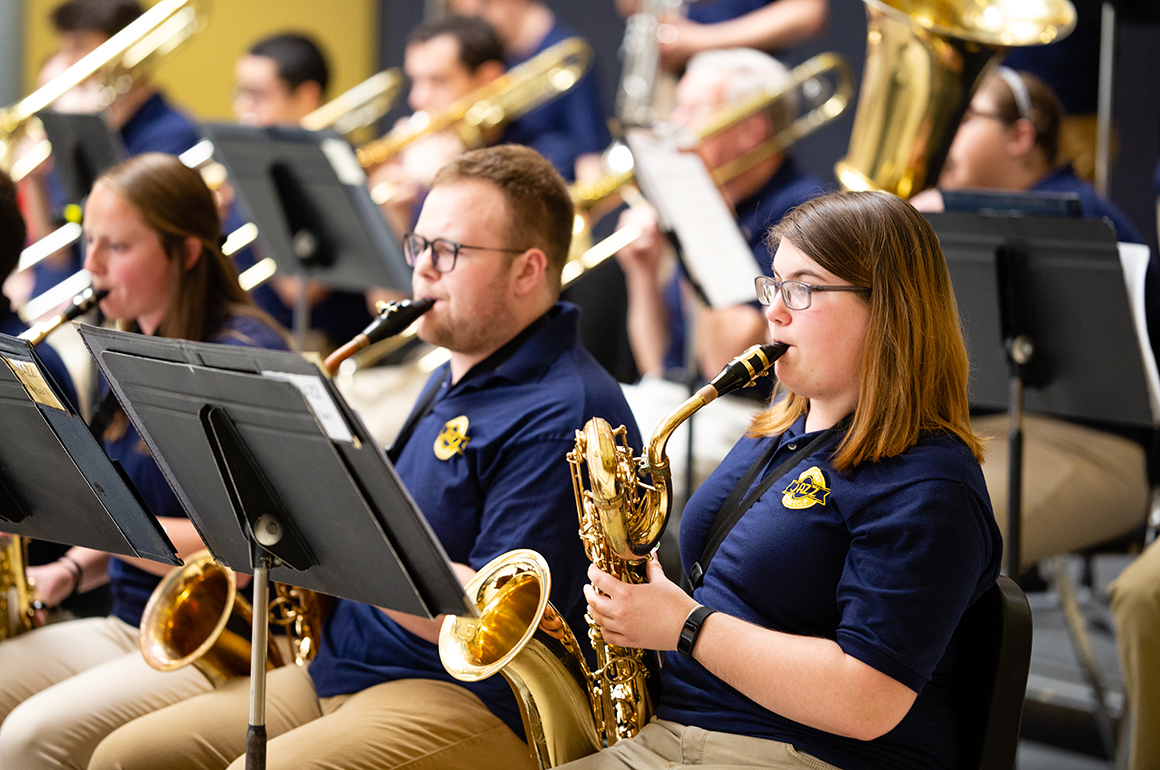
Students continue membership in ensembles and should begin their coursework in music theory and history if they have not already done so. Students who intend to minor in Music should discuss which of the three minor options works best for them with their applied teacher and/or the Music Department chair.
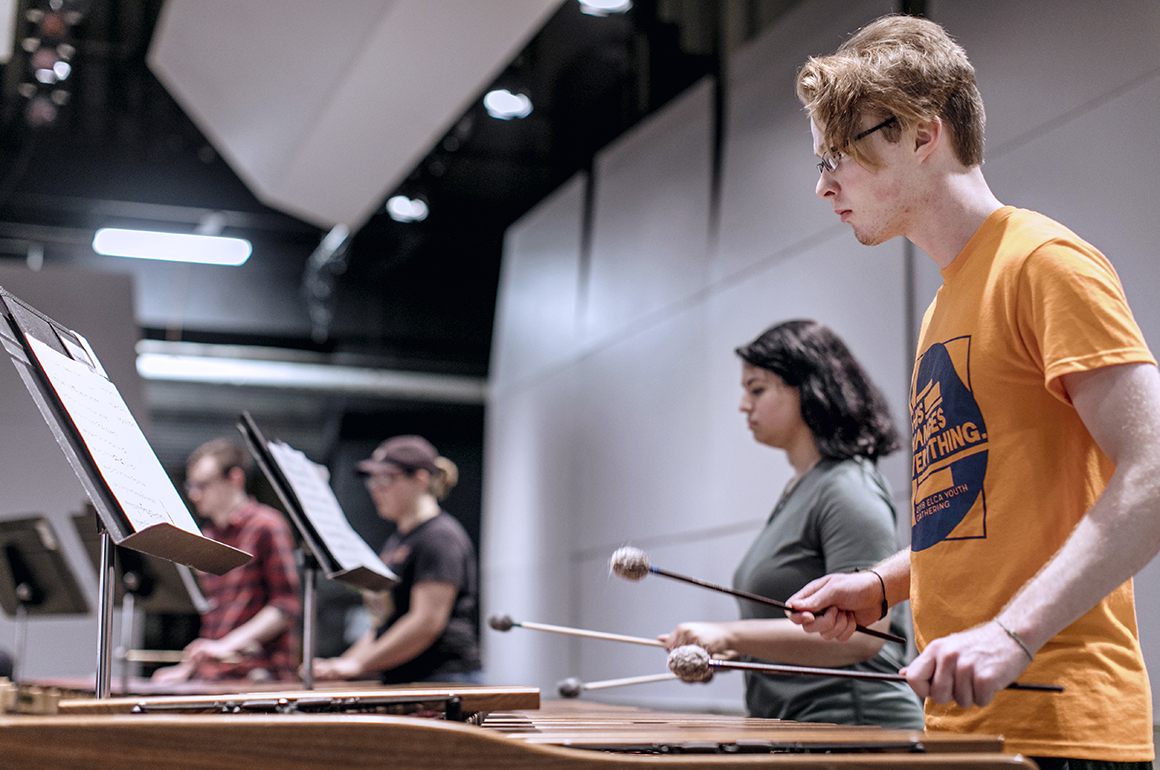
Music minors should begin juried-level applied lessons by year three if they have not done so already. Students may also consider an elective recital, either given as a solo performance or in collaboration with another student recitalist.
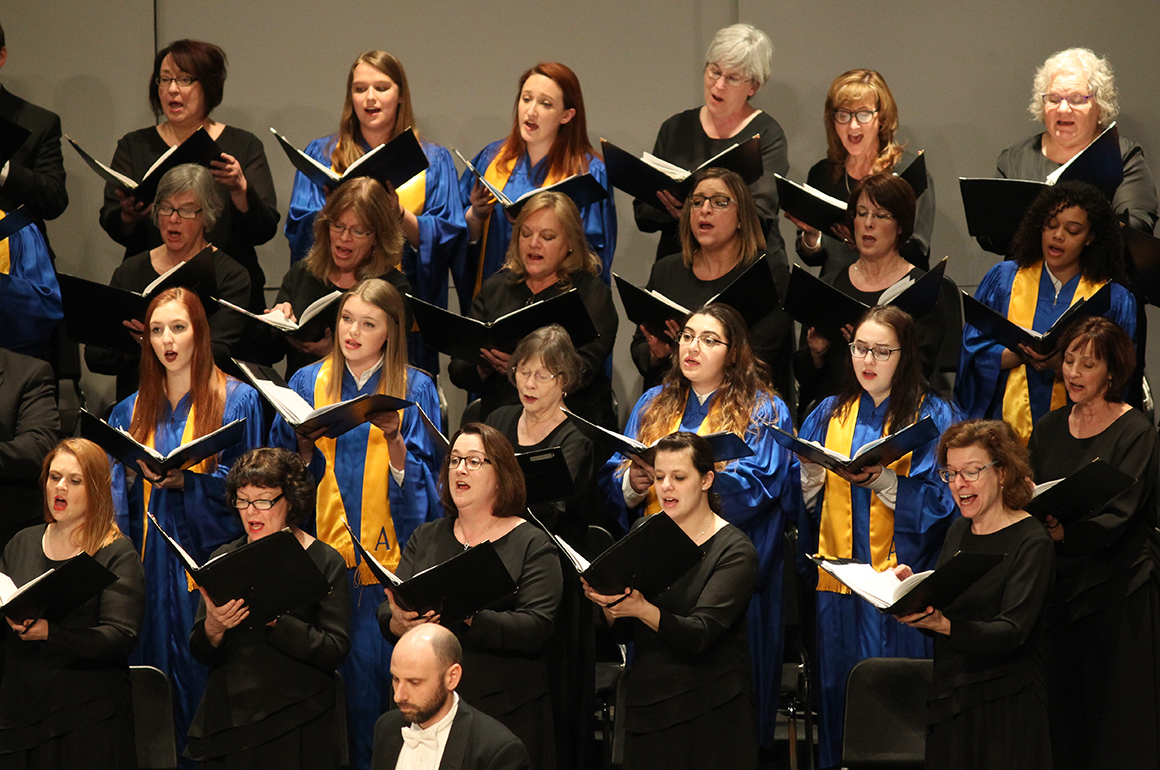
Students may choose to incorporate elements of their Music minor into their Senior Comp in their major, or they may consider an elective recital, either given as a solo performance or in collaboration with another student recitalist.
